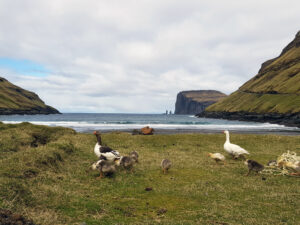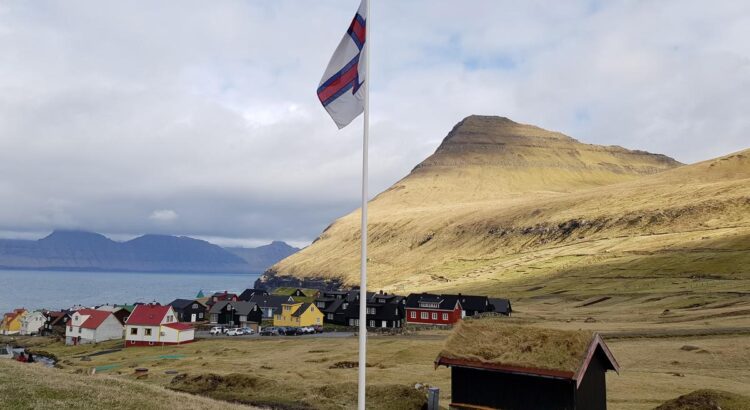The Nordic Council of Ministers has just published two publications based on the project “Community-Based Monitoring and Management of Living Resources in the Faroe Islands”.
The report Strengthened locally based monitoring and management of living resources in the Arctic presents practices and recommendations with citizen involvement in nature management in the Arctic. The first part of the report describes case examples in Norway, Iceland and Greenland. The second part provides a summary of the discussions on citizen involvement in nature management in the Faroe Islands from the project’s workshop in Sandavágur on 7 May 2024. The basis for the workshop was discussions with local hunters about seabirds and bird hunting in focus groups in four settlements in April 2024
The report emphasizes that local knowledge improves the quality of decision-making—for example, through observations and data that might otherwise be overlooked by centralized authorities. It also highlights how local involvement fosters greater legitimacy and a stronger sense of ownership in resource management. In the Faroe Islands, citizen dialogue proved especially important, where nature is directly linked to identity and tradition, and where sustainability must also address modern challenges like speedboat traffic.
The report concludes that citizen engagement can concretely enhance resilience and ensure that natural resources are managed in ways that benefit the environment, the economy, and local communities. It points to the need for long-term frameworks, capacity-building, and technical support for local monitoring systems.
The publication offers several recommendations: to strengthen shared Nordic experience, ensure better data sharing and public engagement, and establish formalized cooperation models between authorities and local actors—steps that can ultimately help secure a sustainable future for the Arctic.
The second report Guidance for strengthening citizen involvement in the management of nature in the Arctic sets out a framework for engaging citizens in the Arctic in nature conservation and sustainable management. The publication presents a concrete five-step model for community-based monitoring and management of nature.
The strategic approach begins with identifying the authority responsible for citizen involvement. Next, it recommends holding public meetings to determine what local knowledge can contribute and how it can be best utilized. The third step focuses on establishing locally based monitoring—citizen science—where citizens collect data on environmental developments. The fourth aspect emphasizes the importance of supporting continued citizen engagement through formalized cooperation mechanisms. Finally, the initiative is linked to the UN’s biodiversity goals by integrating local data into global monitoring efforts.
The Faroe Islands are used as an example: the guide shows how local hunters, landowners, communities, and authorities can work together to contribute valuable insights about natural resources—from bird populations to hunting habits—thereby creating more legitimate and effective management practices.
The report highlights that including local knowledge not only strengthens nature conservation but also activates an untapped potential for bottom-up development. In particular, Arctic communities can enhance their economic and environmental sustainability by participating directly in nature management.
The project was led by the University of the Faroe Islands, staff of Umhvørvisstovan, and NORDECO, in close dialogue with Jagtforeningen Lonin on Sandoy. The project was supported by the Nordic Council of Ministers’ Working Group for Biodiversity with co-support from the UArctic Thematic Network on Collaborative Resource Management, and the EU Commission through the projects European Citizen Science, FRAMEwork, and MoRe4nature.
Download the two reports in pdf format:
Styrket lokalt baseret monitering og forvaltning af levende ressourcer i Arktis
Vejledning til styrkelse af borgerinddragelse i forvaltning af naturen i Arktis

Photos: Pipaluk Balslev/norden.org
